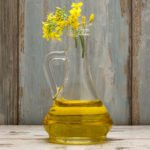Just a few days ago, the FDA announced its final rule establishing regulations on manufacturing practices for dietary supplements. The final rule includes requirements for establishing quality control procedures, designing and constructing manufacturing plants, and testing ingredients and the finished product. It also includes requirements for recordkeeping and handling consumer product complaints. And under the final rule, manufacturers are required to evaluate the identity, purity, strength, and composition of their dietary supplements.
Who could object to any of that? At first glance, it all appears to be in keeping with the principles established in the DSHEA laws.
However, appearances can be deceiving.
Under the DSHEA laws of 1994, Congress limited the Food and Drug Administration’s oversight of vitamins and other dietary supplements. The FDA has never liked those restrictions and has diligently played the edges of the law in an attempt to progressively restrict access to alternative health treatments and education. Under the old regulations, supplements were governed by the same rules that applied to producing foods, such as cans of refried beans. The new rule, which is the product of DSHEA, took nearly 13 years to develop – which tells you how seriously the FDA considered the issue.
- As the FDA says, “The rule establishes CGMPs (current good manufacturing practices) for industry-wide use that are necessary to require that dietary supplements are manufactured consistently as to identity, purity, strength, and composition.” Sounds good when you’re talking about drugs and drug-like herbal isolates. It sounds less good when you’re talking about natural herbals and natural food-based supplements. What does it mean, for example, if you’re making a supplement based on barley grass? Are you now required to “standardize” naturally grown ingredients so that they match some arbitrary standard? And if not now – some day?
Keep in mind we’ve been down this road before. The result is called the pharmaceutical industry.
Nevertheless, some in the alternative health community have embraced the new rule. Steve Mister, president and CEO for the Council for Responsible Nutrition, a trade association representing about 65 manufacturers, said, “Most companies already test their raw ingredients once they come into the plant. This raises the bar so that all have to comply.”
All well and good, but beware of the ambiguities that come with the rule. For example:
- According to the FDA, the new rule “will give consumers greater confidence that the dietary supplement they use has been manufactured to ensure its identity, purity, strength, and composition.” Sounds great, but
- Under the CGMP rule, manufacturers are required to employ qualified employees and supervisors. That works well in a vitamin manufacturing plant, but what does it mean in plant manufacturing herbal tinctures? Who is the expert – the person in the lab coat, or the herbal geek who has been working with herbs for 40 years. The enforcement of this rule may be loose in the beginning, but how will it evolve over time?
- Under the CGMP rule, manufacturers are required to use equipment and utensils that are of appropriate design, construction, and workmanship for the intended use. Again, who determines what is appropriate? How does enforcement evolve over time?
Do you think I’m overly paranoid?
In issuing the announcement, the FDA stated, “The final rule includes flexible requirements that can evolve with improvements in scientific methods used for verifying identity, purity strength, and composition of dietary supplements.”
Why with a little tweaking, the new rules should serve as a nice lead in to adoption of Codex Alimentarius, which the FDA supports.












So the FDA on behalf of the UN, accepts money from the pharmaceutical industry to pass laws that allow their petrochemical and biotech companies to thrive. Together they fill the market with inferior product (GMOs, synthetics, etc.), destroy resources (oil reserves, forests, etc.), and propagate PR schemes to convince society it is all okay, and more importantly to deter any action towards bringing the things that matter or need more investigation to light (“”free”” energy/renewable resources, alternative medicine, nutrition, third-world conditions, fraudulent business practices on behalf of well-know corporations, etc.)
All the while the government turns a blind eye because they get paid either from the companies directly (e.g: PDUFA, S1082, etc.) or “”indirectly”” by having high-ranking politicians who have a vested interest.
What happened to free-enterprise, democracy, and personal integrity?
For those that want to know more about Codex Alimentarius:
http://www.healthfreedomusa.org/index.php
I want to let Jon Barron know that he may have saved my sister’s life. I came across his newsletter on the web which warned that it wasn’t good to take HCl at the same time as digestive enzymes. Nowhere else on the web can I find such a warning – and yet what I read made absolute sense to me. My sister has been wasting away – down to less that 6 stone – with absolutely appalling digestion. She looks like a walking skeleton. Having read Jon’s newletters I suggested that she stop taking the HCL – the effect was immediate. I only pray that it is not too late. Please thank him from the bottom of my heart.
I worked for the Federal Reserve Bank for 15 years. Five as a bank examiner where our focus was to inspect banks for their ability to uphold their responsibility to stabilize the economy and preserve the financial payments system. During the 80 years from 1913 we went from incompetency to truly “being from the government and here to help.” Then on a dime, in the mid 1990’s there was a change of tone at the top and we became “from the government, knowing you are bad and we are going to punish you for it.” We adopted that perspective from the FDIC who had been using it since at least the Savings and Loan crises many years earlier. They want your money and when you stay sick it’s easier to get.